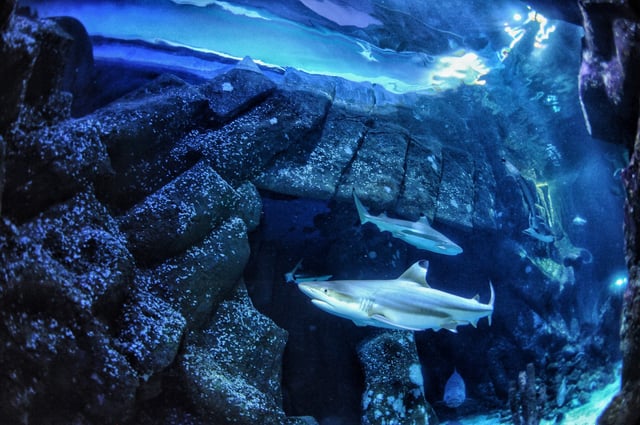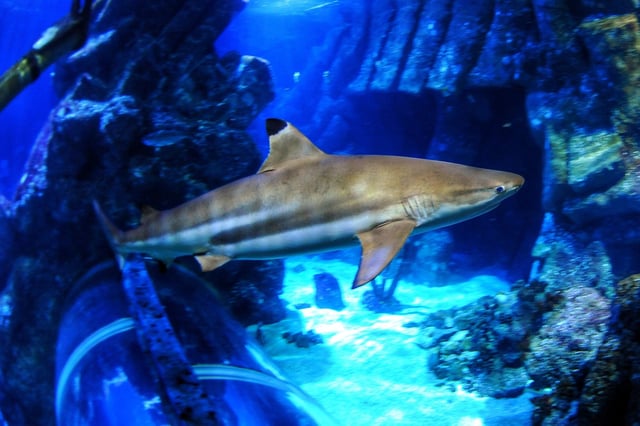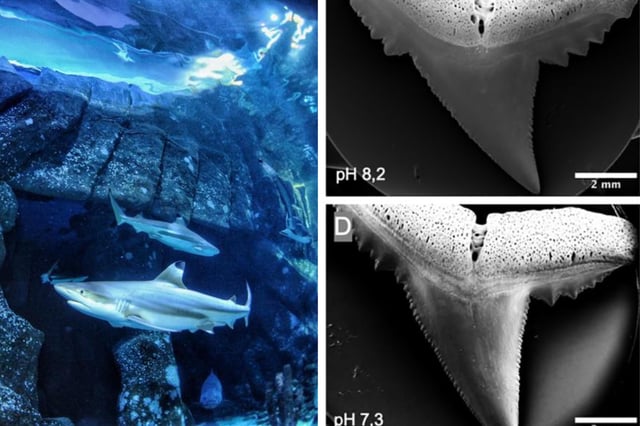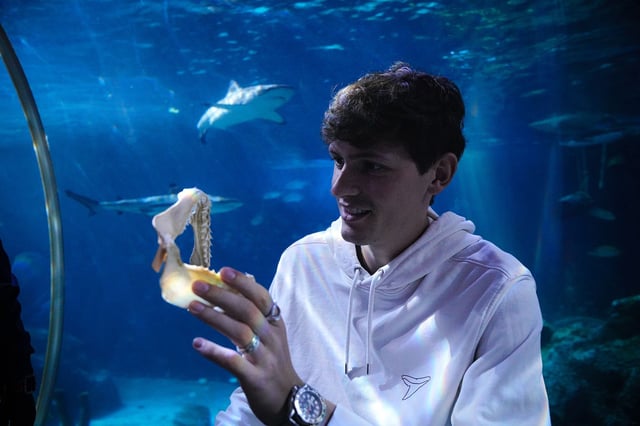Overview
- Researchers incubated naturally shed blacktip reef shark teeth for eight weeks at pH levels near today’s average (~8.1) and a projected 2300 scenario (7.3), observing markedly greater corrosion in the lower-pH tanks.
- Microscopy documented cracks, holes, increased root erosion and structural degradation, indicating weaker teeth even though sharks continually replace them.
- The peer-reviewed study, published in Frontiers in Marine Science, used teeth collected at Sea Life Oberhausen and establishes a chemical baseline for tooth vulnerability.
- Authors and external experts note limits because samples were non-living and the pH scenario was extreme, urging follow-up research on live animals and feeding performance across species.
- Scientists highlight that ocean acidification is driven by ocean uptake of human-generated CO2, with NOAA reporting about a 30% increase in surface-ocean acidity since preindustrial times.



